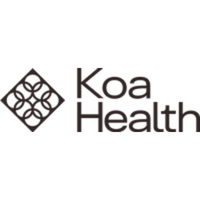Mental health must be embedded as a cultural priority to capitalise on employee benefits technology

Last week’s ONS figures revealed that depression has more than doubled among UK adults since the start of the pandemic. And our new report, Wellbeing at Work, found that 60% of HR managers reported seeing an increase in demand for mental health support after lockdown started, with most spending roughly 30% more of their time managing issues related to mental health across their teams.
It’s clear that a silent, second pandemic of mental health challenges is happening following more than a year of social disruption, uncertainty and isolation. With many restrictions still in place, much of this pandemic remains hidden beneath the surface – yet felt by millions of people at their kitchen tables. As companies restart operations and communities get back to ‘normal’, this iceberg is beginning to surface.
Technology has the power to shape change
Working as a doctor in NHS psychiatry services, it became clear to me that technology has a huge part to play in radically expanding access to care, and intervening early before small problems become big problems. With the World Health Organization (WHO) stating that one billion people worldwide live with a mental disorder, personalised, digital mental health solutions are our best tool to reach the vast numbers of people needing help today. And while healthcare organisations must be at the core of responding to deep-rooted mental health issues, employers form a huge part of the frontline efforts, playing their role in improving employee mental wellbeing.
Many businesses are already doing this, taking advantage of the employee benefits technology that is on offer. Our report found that HR managers deployed a number of tactics to measure employee mental health during the pandemic. 31% of HR managers said that they used the uptake of employee assistance programmes (EAPs) to measure mental health, while 31% measured the uptake of therapy, resources or mental health app subscriptions on offer.
Although this is certainly positive, more organisations need to capitalise on the solutions available to them. Employee benefits technology has come a long way and has much to offer by way of personalised mental health solutions that help build the skills employees need to manage stress and become more resilient.
To see real progress, mental health must become a cultural priority
The workplace is central to the improvement of society’s mental health. Not only is there a strong moral case for employers to look after their staff’s physical and mental health, but the business benefits are now very clear. And yet, Koa’s report found that more than two fifths (43%) of HR managers agree that mental health is still not recognised as a cultural priority in their organisation.
It’s the company culture that creates a safe space for people to open-up about their challenges and seek help early. Of course, culture change takes effort from both leaders and team members, but it can deliver healthier, more resilient and more productive teams that deliver business performance and post-Covid recovery.
Our report also shows that a small number of organisations are planning to reduce mental health support after employees return to the office. Frankly, this is shocking, when we consider that the greatest mental health challenges are yet to come as we try to get back to ‘normal’. The risks of disinvestment include liability against an employer’s duty of care, staff burnout, low morale, absenteeism and disengagement.
Organisations’ response to the effects of the pandemic will profoundly affect individuals’ mental health, not to mention company productivity. That’s why it’s critical that companies act now to embed mental health as a cultural priority right across the business. Without it being a central part of a company’s culture it will be impossible to truly capitalise on the employee benefits technology available to them. And, without action, we will continue walking into the silent mental health pandemic which could be even more destructive than the Covid-19 pandemic in the long run.
Posting on social media or scheduling ad hoc employee mental health days is no longer enough; organisations must go further. They must lead from the top and show their employees that “it’s OK not to be OK”, opening up the space for people to talk. And they must use the power of personalised technology to shape change and bring true benefits for their employees.
Join our movement to embed mental health as a cultural priority – download our Embedding Mental Health into Organizational Culture report.
The author is Oliver Harrison, CEO at Koa Health.
This article is provided by Koa Health.
Supplied by REBA Associate Member, Koa Health
At Koa Health, we believe digital mental health solutions are the answer to mental health issues.







